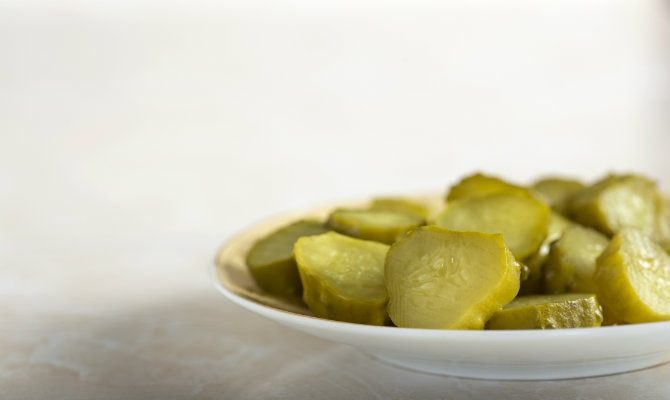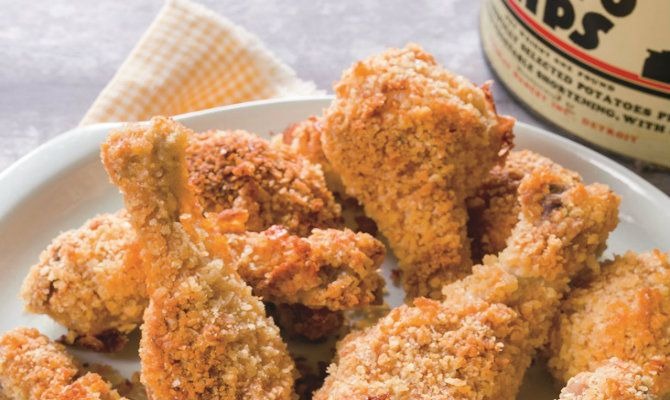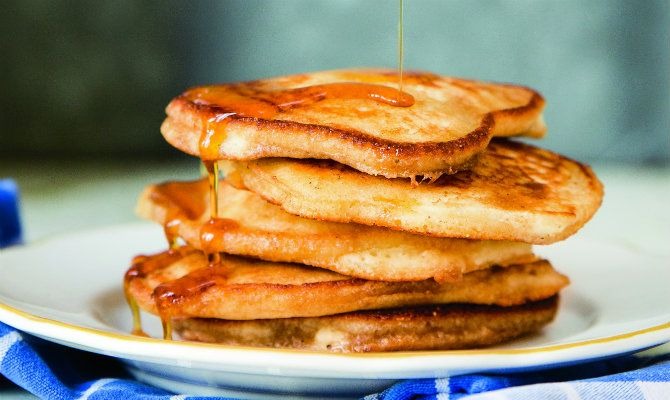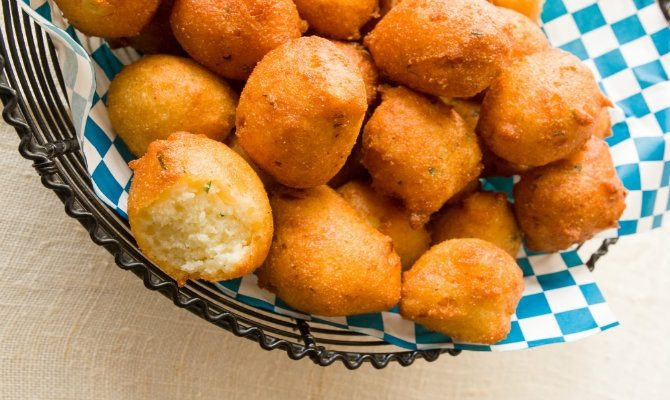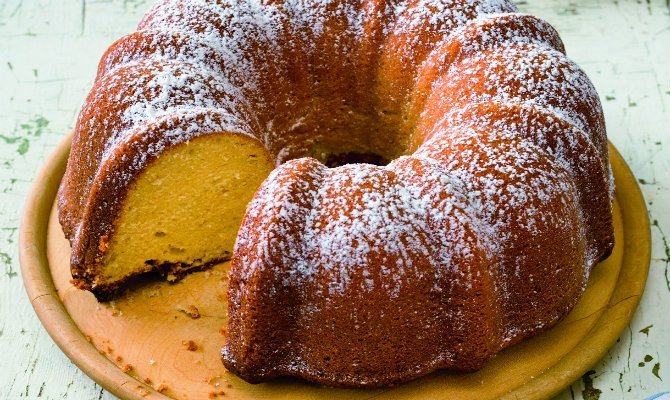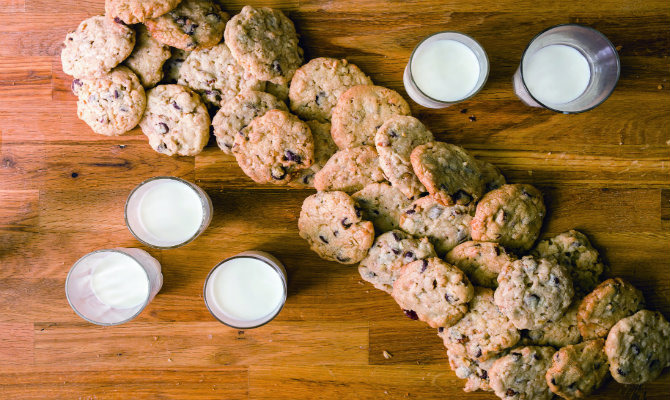Dora Charles Shows Us What It Takes To Be 'A Real Southern Cook'
When Dora Charles was barely old enough to see over the countertops in her grandmother's kitchen, she began cooking. Since then, she has made a name for herself preparing traditional Southern recipes for her family and patrons that have given her a reputation as one of the best cooks in the South. She even jokes that friends and family will state, "If Dora made it, I'll try it."
Click here for the 10 Cookbooks Everyone Should Have slideshow.
Charles' recipes are rich, soulful and steeped in the food traditions of traditional southern cookery. For years, Charles was the cook behind the Paula Deen's famous — now infamous —restaurant, Lady and Sons' in Savannah. Charles was famously fired after confirming rumors involving racism at the restaurant.
Now, Charles is sharing her beloved recipes with fans in her first cookbook, A Real Southern Cook in her Savannah Kitchen. Charles has never been afraid to share her recipes; she is always willing to share the joy of a delicious meal. For this book, however, she had to actually write down her recipes, something new for the cook who had never relied on written recipes.
A Real Southern Cook is filled with anecdotes and Charles' family history that depict the importance of the family meal, as well as the bittersweet and scarred history of the South and its food.
We had the opportunity to talk with Charles about the process of writing this book and the importance of cooking together as a family.
The Daily Meal: What inspires you in the kitchen, and where did you draw your inspiration from for this cookbook?
Dora Charles: Growing up with my grandmother, I watched her cook as she did for her family. One of her recipes I included in the book that I loved so well was her dressing, her cornbread dressing. She cooked for us every day and every Thanksgiving she did all the cooking, Christmas she did all the cooking. She would get in the kitchen and prepare herself a couple of days ahead of time, and she would prepare all of the cakes and pies. I would be right there helping her out. That is just something she done all the time. Everybody would always come to our house for the family gathering at that time.
TDM: In the book, you talk about food traditions and family, what are some of your favorite food traditions?
One [of the food traditions I continue to share today] is the cornbread dressing, another is the collard greens, pot roast — I love to cook it and the kids love the pot roast and gravy — and definitely the collard greens, can't leave those out.
I used to cook [collard greens] almost every other Sunday, but cut back on that right now. [Everybody loves] the macaroni and cheese, of course. They love the dried beans, and fresh beans, that was my daddy's tradition. He would go to the market and get the fresh beans, you know, the kind you have to peel. He liked to freeze them. Peel them and bag them in the summer, and put them in the freezer, so during the winter time we would have fresh beans and peas, so those are things we love as well. That was a tradition and thing that he loved and of course my grandmother loved it too because he did a lot for her. And cornbread, can't leave that out.
TDM: What are your go-to ingredients that you always keep in your pantry?
I always keep stuff in the pantry like...well, we didn't do too much of that because my stepmother used to have a garden where we had fresh cucumbers, tomatoes, and stuff like that. We used to make stuff out of that. Now, I always keep tomatoes so I can make Brunswick stew, and chili that I can make right quick, and baked spaghetti, where I can grab that and make it right quick.
TDM: How do you hope readers will use this book?
I hope that [readers] cook for their family more often, and you know, make traditional things for themselves. Get in the kitchen with their kids and cook together, and just enjoy what they are doing. [I hope] they sit and talk about [the food] and if they like it, and if they don't how to try something else to improve it, stuff like that.
I have four grand-boys who are around me most of the time and they like to get in the kitchen and help with me a lot. It is fun to get in the kitchen and cook and try stuff out.
TDM: You mention that you have taught more than 60 people to cook at the restaurant without using written recipes. What was it like actually writing down these recipes for the book?
First off, it was really difficult trying to measure out everything, and put it down in writing because like I say, I didn't go by any recipe. When I was teaching people how to cook [in the restaurant], I just talked them through it. As I cooked, I just showed them how to do it — I didn't have a recipe to show them. Trying to put it into writing, I didn't have many [written recipes] to pull out. Getting Fran McCullough to help made it much easier to do. It made it easier and joyful to do then. Me trying to do it by myself? I couldn't see this book getting done.
TDM: How did cooking in the restaurant differ from how you would cook at home?
I got used to cooking in that large quantities at the restaurant so much that when I got home sometimes I would kind of get off track. I was just so used to cooking for a large group, and I [cooked] at home mostly when we got together in a larger group. Then I would get so used to cooking this for a large group and this for a large group that when I got home sometimes I found I would overdo it with the seasoning. I like spending time with my family and not being too busy where I can't. But there is a big difference between the restaurant and cooking for family. It's the same cooking, but it's a faster pace I would get into at the restaurant, then when I am at home and could take my time, do what you have to do, and spend that time with family.
TDM: How important is cooking with family and cooking with your kids?
I think it is very important [to cook with your family]. When I was cooking with my grandmother, you know, I didn't know it would come to all this. Of course, I didn't know it would be a cookbook, but it's just how I thought it should be; I thought we should keep some things as tradition. Things change so much, but some things don't have to change. I taught my daughter how to cook, and she is a very good cook as well. Sometimes when she cooks you can't tell if she cooked it or I done it. She had all boys but that don't mean that they can't learn to cook as well. I think it is very important that they learn to cook and pass it down from generation to generation. All that we have to pass down is that because when everything else is gone, we don't have anything else but the love we have for our family and the cooking that we share to keep us all together.
TDM: What do you think is the secret to cooking well?
Seasoning is not just throwing a little salt and pepper on it, its marinating it all in there, so you can show how much it means to you for everything to come together, and that everybody enjoys it. I like to see the expressions on their faces, to see that they enjoyed it, and they want to come back for more. To hear them say, "If Dora didn't cook it then I don't want it," and stuff like that.
I take my time with it, I season it well, and some people say I, "put my foot in it." I just enjoy doing it. I always say enjoy what you do and have fun with it. When its seasoned well you can get a lot of flavor out of it, where it is bursting with flavor, so you taste everything until you find what you're looking for. I always say, "you're looking for something." There is always a flavor you are looking for so you keep going until you find that flavor.
TDM: Is there anything else you would like to tell us about the book?
I hope you enjoy the book and have as much fun as I did putting it together. Just enjoy yourself cooking.
Want to try a recipe?
Cheater’s Pickles
These fresh, almost-instant pickles start off with the cucumber slices getting a big chill with a little bit of sugar, which draws out some of their water. Then just a splash of vinegar and a little salt, and you've got a really refreshing side dish for barbecues, picnics, or anything fried. They're great plain, but you can add snipped dill, chives, or mint, or even some thin-sliced Vidalia onion. — Dora Charles
Potato Chip Chicken
This recipe sounds like it might be a joke, but it's really dynamite. Chicken drumsticks with a potato chip crust—what could be bad? Crunchcrunchcrunch, with tender succulent chicken under the crunch. After I tasted it at my friend Dorothy Lee's house, I had to get the recipe. It's fun to make, fun to eat, and as addictive as potato chips. And, of course, kids just love it.
You have to use rippled potato chips, and not low-salt or no-salt. Then you'll salt it all again—but don't worry, it's not too salty in the end. — Dora Charles
Hoecakes (fried cornbread)fried chicken,
If you saved the flavorful frying grease from making you'll be glad you did when you add a spoonful to this batter.
This recipe makes a small batch. Double or triple it if you need to feed a big family or a lot of friends. The batter will keep for a couple of days in the refrigerator. — Dora Charles
Hushpuppies
Does anyone not love hushpuppies? Everyone I know is crazy for these deep-fried cornmeal cakes, and I am too. I like them very crunchy on the outside and light on the inside. Sometimes they can be real sinkers. Not these. They have beer in them, which makes them lighter. Use an electric fryer with a basket or a Dutch oven with a fry basket to make them (see Notes).
Some people dip their hushpuppies into all sorts of things, like tartar sauce and soft butter, but I don't. — Dora Charles
Lost-and-Found Lemon Pound Cake
And oh, my goodness, what a wonderful cake it is! Feathery-light, rich but not at all heavy, lightly sweet. I'm so grateful to Miss Mary Martin for writing it down, and to Aunt Laura for preserving it. This one is like no other pound cake you've ever eaten. — Dora Charles
Orphan One Hundred Cookies
I got this cookie recipe with the wacky name from my Aunt Laura, who can't remember who gave it to her. So these cookies have no home and no mama. They're chewy, crisp, sandy, rich, buttery, and light, all at the same time. It's hard to stop eating them, so it's a good thing the recipe really does make a hundred cookies. They have a secret ingredient: crunchy Rice Krispies. — Dora Charles
For the Orphan One Hundred Cookies recipe, click here.
Angela Carlos is the Cook Editor at The Daily Meal. Find her on Twitter and tweet @angelaccarlos.
